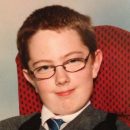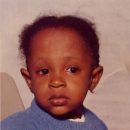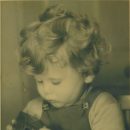ALLFIE: ALLFIE part two
More from
ALLFIE
What we did. Part 2 of 3
Transcript
We didn’t do an enormous amount of advertising and we got such a huge response so we had over a hundred applications, which said to us that this was something that really, there was a need and it was an area of work around oral history that has not been done in quite the same way before. I think the furthest I went was Cumbria and then the closest was Streatham. All very interesting, all very different, and all very kind of insightful, painful, positive, lots of kind of things, that made me reflect on a lot about, the challenges for future inclusion because it’s far by (from), being achieved and there’s a lot of work to do around it.One thing that struck me about interviewing the deaf people was just how much of our history is tied up in those individuals. There was a lot of comparisons but they went to completely different schools, completely different areas but there was a lot of similarities and a lot of shared experience there which I thought was quite interesting and I think it’s important for us to understand the past, so that we know how we can work in the future and we can make the changes that we need to make.
It took much longer than we thought to actually arrange for things to happen, like the training and the getting people together and,I kept wondering why that was, why is it that that’s taking so much longer than we thought. And I realised it’s because it’s actually a very unique volunteers project. Very often voluntary projects are a group of people who have time on their hands who want to get involved with something, that it’s the volunteering that they’re interested in. Where it was a bit the other way round with this project. Our volunteers were disabled people who were really passionate about this history being told, and so they were busy people,they had busy, full lives.
Explore more
Explore stories by theme or view the timeline of significant events in education for disabled people
![How Was School? [logo]](https://howwasschool.allfie.org.uk/wp-content/themes/hws-base-theme/assets/img/allfie-logo-original.svg)



